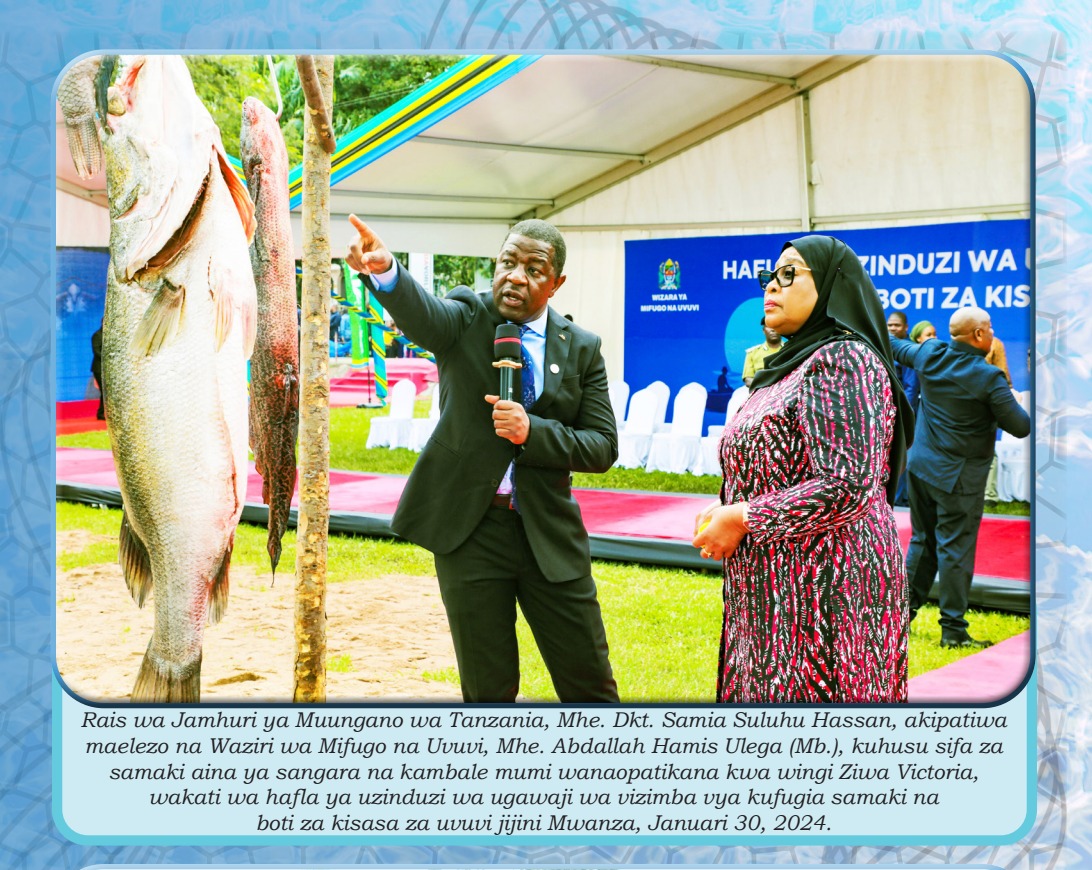In 2024/5 budget speech delivered by Hon. Abdallah Hamis Ulega (MP), Minister of Livestock and Fisheries, the integration of livestock and crop farming was highlighted as a key priority for the government. Integrated farming systems involve the combined management of livestock and crops, promoting synergies and enhancing the sustainability and productivity of agricultural operations. The budget outlines several initiatives aimed at promoting the integration of livestock and crop farming in Tanzania.
One of the major initiatives highlighted in the budget is the promotion of agro-pastoral systems. Agro-pastoral systems involve the integration of crop cultivation and livestock rearing on the same farm. The government is providing support for the establishment and maintenance of these systems, including the provision of necessary tools and equipment for integrated farming. By promoting agro-pastoral systems, the government aims to improve the productivity and sustainability of agricultural operations. This integrated approach ensures that farmers can benefit from the synergies between crop and livestock production, such as improved soil fertility, efficient use of resources, and diversified income streams.
The budget also emphasizes the importance of training and capacity building for farmers involved in integrated farming. The government has initiated various training programs to equip farmers with the knowledge and skills needed to manage integrated farming systems effectively. These training programs cover topics such as crop-livestock interactions, soil fertility management, pest and disease control, and financial management. By enhancing the capacity of farmers, the government aims to ensure the successful implementation of integrated farming practices.
The budget speech by Hon. Abdallah Hamis Ulega (MP) also highlighted the importance of promoting sustainable land management practices in integrated farming systems. Sustainable land management involves practices that protect and enhance the natural resource base, ensuring the long-term productivity of the land. The government is promoting practices such as crop rotation, intercropping, and conservation tillage, which improve soil health and reduce erosion. By promoting sustainable land management practices, the government aims to enhance the resilience of agricultural systems to environmental challenges and ensure their long-term sustainability.
The establishment of demonstration farms for integrated farming is another significant step mentioned in the budget. These farms serve as training and innovation hubs where farmers can learn about best practices in integrated farming. The demonstration farms showcase various integrated farming techniques, including the use of cover crops, integrated pest management, and efficient water use practices. By providing hands-on training and practical experience, the government aims to improve the skills and knowledge of farmers, thereby enhancing the productivity and sustainability of integrated farming systems.
The budget also emphasizes the importance of involving women and youth in integrated farming. Women and youth play a crucial role in agriculture and are often the primary caregivers of both crops and livestock in rural households. The government is implementing initiatives to ensure that women and youth have equal opportunities to participate in integrated farming. This includes providing targeted training programs, financial support, and access to resources. By involving women and youth, the government aims to promote inclusive growth and ensure that all segments of society benefit from the economic opportunities in integrated farming.
Public awareness and education are vital for the success of integrated farming initiatives. The budget includes initiatives to raise awareness about the benefits of integrated farming and to educate farmers on how to effectively implement these practices. This involves the dissemination of information through various channels, including workshops, seminars, and media campaigns. By increasing awareness and knowledge, the government aims to encourage more farmers to adopt integrated farming practices and improve their productivity and sustainability.
The government’s efforts to promote the integration of livestock and crop farming are expected to have significant social and economic benefits. Integrated farming systems enhance the efficiency and sustainability of agricultural operations, leading to higher productivity and profitability. They also improve the resilience of farming systems to economic and environmental challenges, ensuring that farmers can continue to produce food and generate income despite changing conditions. By investing in integrated farming, the government aims to create a sustainable and prosperous agricultural economy.
The initiatives to promote the integration of livestock and crop farming outlined in the budget speech by Hon. Abdallah Hamis Ulega (MP) reflect the government’s commitment to fostering a holistic approach to sustainable agriculture in Tanzania. Through the promotion of agro-pastoral systems, training and capacity building, sustainable land management practices, establishment of demonstration farms, involvement of women and youth, and public awareness initiatives, the government is taking comprehensive steps to enhance the integration of livestock and crop farming. These initiatives are expected to have a significant positive impact on the livelihoods of farmers and contribute to the overall social and economic development of Tanzania.
